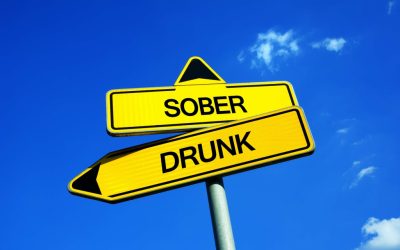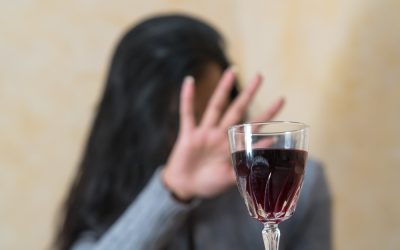Marijuana Treatment And Rehab Recovering From Marijuana Addiction
Full assessments and evaluations of the whole person work in tandem to design a successful program. Avoiding professional intervention and “white knuckling” detox and abstinence has proven unsuccessful in building a new lifestyle without marijuana. If you live in an environment where everyone uses marijuana, your living situation has to change. The barriers to quitting any addiction involve changing people, places and activities used during addiction.
Outpatient Rehab
His focus is on helping people who suffer from multiple issues, such as schizophrenia, mood disorders, substance abuse, PTSD, anxiety, depression, OCD, and ADHD. Sahil enjoys taking time and listening to better understand what his patients are experiencing. He believes that empathy, respect and trust are integral traits that all providers must possess.
- Marijuana is now so widely available in the majority of states that the addicted person may be faced with people using these drugs every single day.
- Marijuana alters perception, mood, and cognition by interacting with the brain’s cannabinoid receptors through THC.
- According to research by Curran et al. in Psychological Medicine (2016), the variability in detection times shows the influence of individual metabolism and usage patterns.
- Rehab also teaches people skills for overcoming cravings, avoiding relapse and living healthy lives.
- Whether this is your first rehab or you have been to many, this can be your last.
- Clinical evaluation is a comprehensive assessment conducted by a healthcare professional that includes a detailed patient history and mental status examination.
Inpatient Opioid Rehab in Georgia
Contact us today to learn more about our comprehensive approach to marijuana addiction treatment and how we can light the way to a brighter, sober future for you or your loved one. Let Lighthouse Recovery be your guide back to a life full of potential and free of marijuana dependency. Marijuana addiction, though often considered less severe than some other substance use disorders, can still have a significant impact on an individual’s life. Several treatment approaches for marijuana addiction involve a comprehensive evaluation to determine the most suitable treatment plan. This evaluation considers various factors, such as the extent of addiction, medical history, and any co-occurring mental health issues. Behavioral therapies are the cornerstone of marijuana addiction treatment.
Popular Centers
Additionally, because it impairs judgment and motor coordination, marijuana use contributes to a greater risk of injury or death while driving a car. Data analysis suggests that marijuana use more than doubles a driver’s risk of being in an accident. On a related note, the combination of marijuana and alcohol increases driving impairment more than either substance alone. Long-term marijuana use can also have a negative effect on the brain’s reward system and lead Drug rehabilitation to physical dependence. Scientists are also reviewing the potential of a dietary supplement called N-acetylcysteine and FAAH inhibitors to lessen withdrawal symptoms.


So far, no medication has been shown broadly and consistently effective; none has been approved by any national regulatory authority. Buspirone is the only medication to date that has shown efficacy for cannabis dependence in a controlled clinical trial. Results from controlled human laboratory studies and small open-label clinical trials suggest that dronabinol, the COMT inhibitor entacapone, and lithium may warrant further study. Recent pre-clinical studies suggest the potential of fatty acid amide hydrolase (FAAH) inhibitors such as URB597, endocannabinoid-metabolizing enzymes, and nicotinic alpha7 receptor antagonists such as methyllycaconitine (MLA). Controlled clinical trials are needed to evaluate the clinical efficacy of these medications and to validate the laboratory models being used to study candidate medications. While behavioral therapies and counseling are the primary approaches to treating marijuana addiction, medication can also play a supportive role in the recovery process.
Find Rehab Centers for Marijuana Addiction
There are many support groups available for those who wish to quit marijuana use. The purpose of behavior therapy is to help patients address the psychological aspects of their condition. The amount of time spent in behavioral treatment differs from person to why is weed so addictive person. As with any substance use disorder, treatment doesn’t stop with rehab. It is a lifelong process where you always have to keep yourself in check and avoid relapse.
Marijuana Rehabilitation Statistics
These criteria include loss of control over use, social impairments, tolerance, withdrawal symptoms, and continued use despite negative consequences. Marijuana addiction occurs when the user https://ecosoberhouse.com/ cannot stop using the drug even though it has a negative impact on their life. People whose substance use disorder involves marijuana often develop a dependency on the drug.

Understanding Cannabis Use Disorder: Symptoms & Treatment
If we consider that the EC system is much like a mail-sorting office, we can understand it is tuned to react to incoming chemical messages in a certain way. In most cases, cannabinoids such as THC affect the EC system by causing it to slow down communication between the cells. Despite marijuana being legal for medical and recreational consumption in Oregon, this does not mean it doesn’t come with its share of baggage. Consuming anything in excess, even if it is legal, can be unsafe and lead to some potentially serious habits and consequences. Marijuana alters perception, mood, and cognition by interacting with the brain’s cannabinoid receptors through THC. Heroin, on the other hand, produces euphoria and sedation by binding to opioid receptors, significantly suppressing the central nervous system.
Many therapy offices provide treatment services themselves, and if they don’t, they will help you find somewhere that does. It prepares an individual for life after rehab and equips them with the necessary skills for long-term recovery. Due to their highly structured and intensive approach, inpatient centers yield the highest rates of success for helping patients overcome their addictions.

